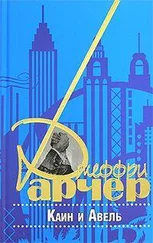Since that day Phillip had flooded the building with memos, warning every department to be sure it covered its own positions, and urging them all to retrieve whatever money they could. He kept the memos flowing on a daily basis, with the result that by now almost everyone, including several members of the board, was convinced that he had been sceptical about the decision from the outset.
The spin he’d put on events to one or two board members who were not that close to Sir William was that he hadn’t felt he could go against the Chairman’s wishes when he’d only been in the Chief Executive’s job for a few weeks, and that had been his reason for not opposing Sir William’s recommendation for a £500 million loan to the Nordsky Bank in St Petersburg. The situation could still be turned to his advantage, because if the Chairman was forced to resign, the board might feel an internal appointment would be the best course of action, given the circumstances. After all, when they had appointed Phillip as Chief Executive, the Deputy Chairman, Maurice Kington, had made it clear that he doubted if Sir William would serve his full term — and that was before the Russian débâcle. About a month later, Kington had resigned; it was well known in the City that he only resigned when he could see trouble on the horizon, as he had no intention of giving up any of his thirty or so other directorships.
When the Financial Times published an unfavourable article about Sir William, it covered itself by opening with the words: ‘No one will deny that Sir William Selwyn’s record as Chairman of Critchley’s Bank has been steady, even at times impressive. But recently there have been some unfortunate errors, which appear to have emanated from the Chairman’s office.’ Alexander had briefed the journalist with chapter and verse of those ‘unfortunate errors’.
Some members of the board were now whispering ‘Sooner rather than later.’ But Alexander still had one or two problems of his own to sort out.
Another call last week, and demands for a further payment. The damn man seemed to know just how much he could ask for each time. Heaven knows, public opinion was no longer so hostile towards homosexuals. But with a rent boy it was still different — somehow the press could make it sound far worse than a heterosexual man paying a prostitute. And how the hell was he to know the boy was under age at the time? In any case, the law had changed since then — not that the tabloids would allow that to influence them.
And then there was the problem of who should become Deputy Chairman now that Maurice Kington had resigned. Securing the right replacement would be crucial for him, because that person would be presiding when the board came to appoint the next Chairman. Phillip had already made a pact with Michael Butterfield, who he knew would support his cause, and had begun dropping hints in the ears of other board members about Butterfield’s qualifications for the job: ‘We need someone who voted against the Russian loan... Someone who wasn’t appointed by Sir William... Someone with an independent mind... Someone who...’
He knew the message was getting through, because one or two directors had already dropped into his office and suggested that Butterfield was the obvious candidate for the job. Phillip was happy to fall in with their sage opinion.
And now it had all come to a head, because a decision would have to be made at tomorrow’s board meeting. If Butterfield was appointed Deputy Chairman, everything else would fall neatly into place.
The phone on his desk rang. He picked it up and shouted, ‘I said no calls, Alison.’
‘It’s Julian Burr again, Mr Alexander.’
‘Put him through,’ said Alexander quietly.
‘Good morning, Phil. Just thought I’d call in and wish you all the best for tomorrow’s board meeting.’
‘How the hell did you know about that?’
‘Oh, Phil, surely you must realise that not everyone at the bank is heterosexual.’ The voice paused. ‘And one of them in particular doesn’t love you any more.’
‘What do you want, Julian?’
‘For you to be Chairman, of course.’
‘What do you want?’ repeated Alexander, his voice rising with every word.
‘I thought a little break in the sun while you’re moving up a floor. Nice, Monte Carlo, perhaps a week or two in St Tropez.’
‘And how much do you imagine that would cost?’ Alexander asked.
‘Oh, I would have thought ten thousand would comfortably cover my expenses.’
‘Far too comfortably,’ said Alexander.
‘I don’t think so,’ said Julian. ‘Try not to forget that I know exactly how much you’re worth, and that’s without the rise in salary you can expect once you become Chairman. Let’s face it, Phil, it’s far less than the News of the World would be willing to offer me for an exclusive. I can see the headline now: “Rent Boy’s Night with Chairman of Family Bank”.’
‘That’s criminal,’ said Alexander.
‘No. As I was under age at the time, I think you’ll find it’s you who’s the criminal.’
‘You can go too far, you know,’ said Alexander.
‘Not while you have ambitions to go even further,’ said Julian, with a laugh.
‘I’ll need a few days.’
‘I can’t wait that long — I want to catch the early flight to Nice tomorrow. Be sure that the money has been transferred to my account before you go into the board meeting at eleven, there’s a good chap. Don’t forget it was you who taught me about electronic transfers.’
The phone went dead, then rang again immediately.
‘Who is it this time?’ snapped Alexander.
‘The Chairman’s on line two.’
‘Put him through.’
‘Phillip, I need the latest figures on the Russian loans, along with your assessment of the McKinsey report.’
‘I’ll have an update on the Russian position on your desk within the hour. As for the McKinsey report, I’m broadly in agreement with its recommendations, but I’ve asked Godfrey Tudor-Jones to let me have a written opinion on how we should go about implementing it. I intend to present his report at tomorrow’s board meeting. I hope that’s satisfactory, Chairman?’
‘I doubt it. I have a feeling that by tomorrow it will be too late,’ the Chairman said without explanation, before replacing the phone.
Sir William knew it didn’t help that the latest Russian losses had exceeded £500 million. And now the McKinsey report had arrived on every director’s desk, recommending that seventy jobs, perhaps even more, should be shed in order to make a saving of around £3 million a year. When would management consultants begin to understand that human beings were involved, not just numbers on a balance sheet — among them seventy loyal members of staff, some of whom had served the bank for more than twenty years?
There wasn’t a mention of the Russian loan in the McKinsey report, because it wasn’t part of their brief; but the timing couldn’t have been worse. And in banking, timing is everything.
Phillip Alexander’s words to the board were indelibly fixed in Sir William’s memory: ‘We mustn’t allow our rivals to take advantage of such a one-off windfall. If Critchley’s is to remain a player on the international stage, we have to move quickly while there’s still a profit to be made.’ The short-term gains could be enormous, Alexander had assured the board — whereas in truth the opposite had turned out to be the case. And within moments of things falling apart, the little shit had begun digging himself out of the Russian hole, while dropping his Chairman right into it. He’d been on holiday at the time, and Alexander had phoned him at his hotel in Marrakech to tell him that he had everything under control, and there was no need for him to rush home. When he did eventually return, he found that Alexander had already filled in the hole, leaving him at the bottom of it.
Читать дальше





![Джеффри Арчер - The Short, the Long and the Tall [С иллюстрациями]](/books/388600/dzheffri-archer-the-short-the-long-and-the-tall-s-thumb.webp)






